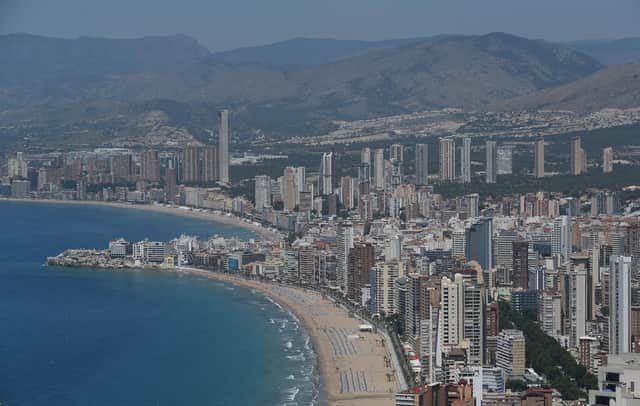Holidays abroad: Here's how to minimise the risks of getting into difficulty amid the pandemic – Andrew Bartlett


With millions of holidays curtailed this year due to coronavirus, many Scots are desperate to get away for some sunshine and relaxation. But the travel landscape has changed dramatically in the wake of Covid-19 and travelling abroad now carries a large level of risk.
While some degree of normality is returning, circumstances can change suddenly – as happened with the reintroduction of quarantine restrictions for travellers from Spain. As the First Minister herself has made clear, no trip abroad can be considered risk-free.
Advertisement
Hide AdAdvertisement
Hide AdDuring lockdown, our advisers at Scotland’s national consumer advice service, consumeradvice.scot, were busy providing support to thousands of Scots seeking refunds for cancelled holidays. This remains one of the most popular requests for advice, not least given some airlines have cancelled flights to and from Spain.
For those who have booked flexible, refundable hotels and flights, this process can be relatively easy. But given such deals usually cost more, many Scots are often stuck having paid non-refundable rates. We have heard about positive proactive action by some companies such as Premier Inn to help customers, but many businesses have unfortunately expected their customers to share their pain.
If you are considering travelling, booking refundable rates is therefore highly advisable. However, regardless of Covid-19, consumer rights do remain in place – and the legislation has to be adhered to by travel providers.
That means if a contract is not performed as agreed, consumer protection law will generally allow consumers to obtain a refund. But it is also vital to remember that consumers are not automatically entitled to refunds if they choose not to travel themselves, which is becoming more pertinent as flights resume – often half-full. We advise holidaymakers to check travel agreements, particularly the small print, to ensure they know their cancellation rights. We also strongly advise booking holidays on a credit card – should the unexpected happen and a travel provider goes into administration, consumers can claim back through Section 75 of the Consumer Credit Act.
DIY holidays will always carry more risk than bookings which are ABTA or ATOL protected – these bodies help to ensure that consumers get what they pay for and help in situations such as when travel providers go into administration. And it’s vital to have travel insurance. This landscape has also changed considerably since the start of the outbreak.
While many policies taken out after March of 2020 will simply not cover cancellations for ‘force majeure’, or unexpected cancellation due to large-scale events such as pandemics, that doesn’t mean travel insurance is not worth it – far from it. It’s important to have adequate travel insurance to cover medical bills before jetting overseas, and this could become even more pertinent as a result of Brexit and uncertainty regarding the current European Health Insurance Card scheme.
Finally, as the Spain situation has demonstrated, a major consideration is whether your job makes self-isolating for 14 days impossible if this was suddenly introduced while you were away. There is therefore a lot to think about when booking a holiday for next year.
In the haste to get a break in the sun, consumers should ensure they have done everything they can to protect themselves and their money.
Andrew Bartlett is chief executive of consumeradvice.scot
A message from the Editor:
Advertisement
Hide AdAdvertisement
Hide AdThank you for reading this article on our website. While I have your attention, I also have an important request to make of you.
With the coronavirus lockdown having a major impact on many of our advertisers - and consequently the revenue we receive - we are more reliant than ever on you taking out a digital subscription.
Subscribe to scotsman.com and enjoy unlimited access to Scottish news and information online and on our app. With a digital subscription, you can read more than 5 articles, see fewer ads, enjoy faster load times, and get access to exclusive newsletters and content. Visit www.scotsman.com/subscriptions now to sign up.
Our journalism costs money and we rely on advertising, print and digital revenues to help to support them. By supporting us, we are able to support you in providing trusted, fact-checked content for this website.
Joy Yates
Editorial Director
Comments
Want to join the conversation? Please or to comment on this article.